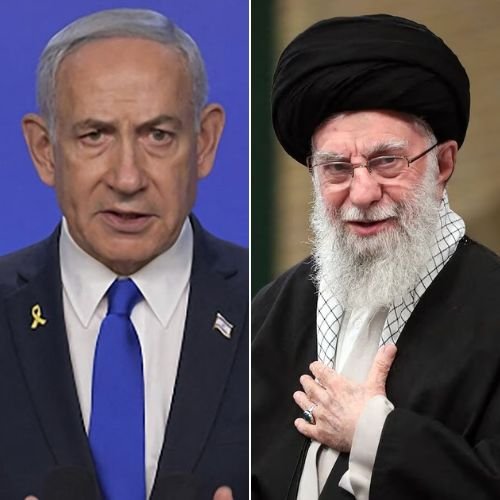Israeli Prime Minister Benjamin Netanyahu stated in an interview that assassinating Iran’s Supreme Leader would not worsen the ongoing conflict but rather end it. Addressing earlier reports that U.S. President Donald Trump had blocked an Israeli plan to target the Iranian leader due to fears of escalation, Netanyahu said, “It’s not going to escalate the conflict, it’s going to end the conflict.”
Iran Vows Continued Strikes Until Israeli Attacks Cease
Iranian Foreign Minister Abbas Araghchi warned that Tehran would keep launching retaliatory strikes unless Israel halted its military operations. As reported by AFP, Araghchi declared, “Our Armed Forces will continue striking until those responsible for war crimes hiding in Tel Aviv are brought to justice. We will punish them as long as it takes to stop the attacks on our people.”
In a separate statement, U.S. President Donald Trump encouraged Iran to come to the negotiating table, warning of dire consequences if they delay. “Iran is not winning this war,” Trump remarked during a press meet with Canadian Prime Minister Mark Carney. “They should talk, and they should talk now—before it’s too late.” G7 leaders are reportedly considering a unified call for de-escalation.
UK PM Keir Starmer Backs G7 Push for De-escalation
British Prime Minister Keir Starmer also weighed in, emphasizing that the G7 nations are unified in their goal of reducing tensions with Iran. He told reporters that although concerns about Iran’s nuclear program persist, the immediate focus is de-escalation. “There is definitely consensus on finding a path to calm the situation,” he said.
Israel Claims Air Superiority Over Tehran in Ongoing Conflict
During a visit to the Tel Nof Airbase, Netanyahu announced that Israeli fighter jets had achieved control over Tehran’s airspace. “We now dominate the skies of Tehran,” he said. “Our objectives are clear—eliminate both the nuclear and missile threats posed by Iran.” This declaration came after a wave of Israeli aerial assaults reportedly took out over 120 missile launch sites in Iran.
Israel’s surprise offensive, codenamed Operation Rising Lion, has intensified the conflict, resulting in significant casualties.
According to the Israel Defense Forces (IDF), Iran retaliated with more than 370 missile launches and hundreds of drone attacks. While most were intercepted, at least 24 people were killed and over 500 injured in Israel, as per reports from the Associated Press.
Israeli Forces Strike Iranian State TV in Tehran
Israeli airstrikes on Monday targeted critical infrastructure in Tehran, including 10 command centres associated with the Quds Force of Iran’s Revolutionary Guard.
Brigadier General Effie Defrin, spokesperson for the IDF, stated that the military now has “complete air dominance” over Tehran. Netanyahu emphasized that while Israel strikes military targets, Iran continues to target civilians.
One of the high-profile targets was the Iranian state broadcaster IRIB, which was hit during a live transmission. The attack abruptly cut the broadcast and sparked a massive fire at the building, as seen in videos circulating on social media.
Iranian Foreign Ministry spokesman Esmaeil Baqaei condemned the assault as a “war crime” and a “wicked act,” urging the UN Security Council to intervene immediately.
The IDF defended the strike on IRIB, claiming the facility was being used by the Iranian military under the guise of civilian media. In a statement on X (formerly Twitter), the IDF said it had issued prior warnings to reduce civilian casualties and called the operation a “precise, intelligence-based strike” targeting military infrastructure disguised as civilian property.



